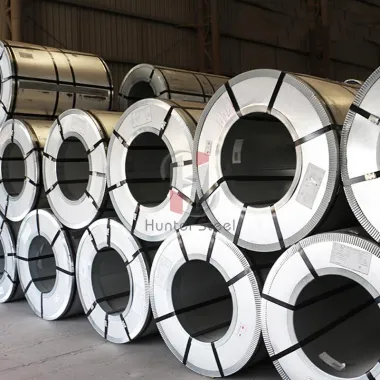FAQs | Everything You Need to Know About Automobile Steel
Automobile steel is a critical component in the manufacturing of vehicles, contributing to their strength, safety, and durability. Here are some frequently asked questions about automobile steel and the detailed answers you need to know:
WHAT IS AUTOMOBILE STEEL?
Automobile steel is a type of steel specifically engineered for use in vehicle manufacturing. It includes various grades and types of steel designed to meet the unique requirements of the automotive industry, such as high strength, formability, and resistance to corrosion. Common types include high-strength low-alloy (HSLA) steel, advanced high-strength steel (AHSS), and ultra-high-strength steel (UHSS).

WHY IS STEEL USED IN AUTOMOBILES?
Steel is used in automobiles due to its excellent strength-to-weight ratio, affordability, and versatility. It provides the necessary strength to protect occupants in case of a collision while maintaining the vehicle's structural integrity. Additionally, steel's malleability allows for the creation of complex shapes and designs, enhancing the aesthetic appeal and functionality of vehicles.
WHAT ARE THE DIFFERENT TYPES OF AUTOMOBILE STEEL?
Automobile steel is categorized into several types based on their properties and applications:
High-Strength Low-Alloy (HSLA) Steel: Known for its strength and durability, HSLA steel is used in critical safety components like the car's frame and chassis.
Advanced High-Strength Steel (AHSS): AHSS is used in structural components to improve crash resistance and reduce vehicle weight, contributing to better fuel efficiency.
Ultra-High-Strength Steel (UHSS): UHSS is used in areas requiring maximum strength, such as door beams and roof structures, providing superior protection in accidents.
Stainless Steel: Used for exhaust systems and decorative trim, stainless steel offers excellent corrosion resistance and an appealing finish.
HOW DOES STEEL CONTRIBUTE TO VEHICLE SAFETY?
Steel plays a vital role in vehicle safety by forming a strong and durable structure that can absorb and dissipate energy during a crash. The use of high-strength and ultra-high-strength steels in critical areas ensures that the vehicle can withstand impacts while protecting the occupants. Additionally, advanced steel technologies allow for the design of crumple zones that deform in a controlled manner to absorb collision energy.
WHY IS CORROSION RESISTANCE IMPORTANT IN AUTOMOBILE STEEL?
Corrosion resistance is crucial in automobile steel to ensure the longevity and durability of the vehicle. Corrosion can weaken structural components, leading to safety risks and increased maintenance costs. By using steels with high corrosion resistance, such as galvanized and stainless steels, manufacturers can protect vehicles from rust and other forms of degradation, especially in harsh environments.
HOW DOES STEEL IMPACT VEHICLE PERFORMANCE?
Steel impacts vehicle performance by providing a balance between strength and weight. While steel adds to the overall weight of the vehicle, the development of high-strength and advanced high-strength steels allows manufacturers to use thinner and lighter steel components without compromising strength. This weight reduction improves fuel efficiency, acceleration, and handling, enhancing the overall performance of the vehicle.
WHAT ARE THE ENVIRONMENTAL BENEFITS OF USING STEEL IN AUTOMOBILES?
Steel is an environmentally friendly material due to its recyclability. Automobiles made with steel can be recycled at the end of their life cycle, reducing the demand for new raw materials and minimizing environmental impact. Additionally, advancements in steel production have led to reduced energy consumption and lower greenhouse gas emissions, making steel a sustainable choice for the automotive industry.
HOW DO AUTOMAKERS CHOOSE THE RIGHT STEEL FOR THEIR VEHICLES?
Automakers choose the right steel for their vehicles based on a variety of factors, including strength, weight, formability, and cost. Engineers work closely with steel manufacturers to develop specific grades of steel that meet the performance and safety requirements of their vehicles. The choice of steel also depends on the intended application, such as structural components, body panels, or safety features.
WHAT IS THE FUTURE OF STEEL IN AUTOMOBILE MANUFACTURING?
The future of steel in automobile manufacturing looks promising, with ongoing advancements in steel technology. Researchers are continually developing new grades of steel that offer even higher strength, better formability, and improved corrosion resistance. These innovations will enable automakers to design safer, more efficient, and environmentally friendly vehicles. Additionally, the integration of steel with other materials, such as aluminum and carbon fiber, will further enhance vehicle performance and sustainability.
In conclusion, automobile steel is a versatile and essential material in vehicle manufacturing, offering numerous benefits in terms of strength, safety, performance, and environmental sustainability. By understanding the various types of steel and their applications, consumers can appreciate the critical role steel plays in the automotive industry.


